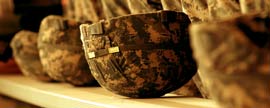Based solely on the information you provided this could be considered a smoke session, hazing, and/or excessive and outside of reasonable corrective training.
Here is an extract of an AR and FM for your review.
AR 600-20
4-19b (3) What does not constitute hazing or bullying?
(a) Hazing may occur when otherwise authorized or permissible conduct crosses the line into impermissible conduct. Bullying is always committed with the intent to exclude or reject another from inclusion in a group and, while the bullying conduct may appear to be corrective training, it is never authorized or permissible. The imposition of necessary or proper duties and the requirement of their performance does not violate this policy even though the duties may be arduous, hazardous, or both. When authorized by the chain of command and/or operationally required, the following activities do not constitute hazing or bullying: (1) the physical and mental hardships associated with operations or operational training; (2) lawful punishment imposed pursuant to the UCMJ; (3) administrative corrective measures, including verbal reprimands and command-authorized physical exercises; (4) extra military instruction or corrective training that is a valid exercise of military authority needed to correct a Soldier’s deficient performance in accordance with paragraph 4–6; (5) physical training and remedial physical training; and (6) other similar activities that are authorized by the chain of command and conducted in accordance with this or another applicable regulation
FM 7-22
Causes Of Overtraining Syndrome And Overuse Injuries
5-12. Safe progression for performance improvement is complex, involving many variables that impact success (entry fitness level, ramp of progression, total volume of activity, rest/recovery, and nutrient intake). Many of these variables can be controlled following the principles of precision, progression, and integration, as well as, monitoring Soldiers in training and making training adjustments as required. Common mistakes to compensate for low performance and rate of improvement are the conduct of multiple training sessions, high intensity “smoke sessions,” and/or excessive corrective action using exercise. All of these are detrimental to performance improvement and lead to overuse injury.
Corrective Action
5-15. When exercise is used for corrective action, it is often performed incorrectly, promoting overtraining syndrome, and overuse injuries. Often corrective action mimics “smoke sessions,” punishing Soldiers with little or no corrective value. Consideration must be given to the number of times per day exercises are used for corrective action for individual Soldiers and groups of Soldiers to avoid the cumulative effect and limit the potential for overtraining syndrome. The following guidelines should be followed when employing exercise as corrective action.
Only the following exercises should be selected for performance of corrective action.
- Rower.
- Squat bender.
- Windmill.
- Prone row.
- Push-up.
- V-up.
- Leg tuck and twist.
- Supine bicycle.
- Swimmer.
- 8-count push-up.
Only one of the above exercises may be selected for each corrective action. The number of repetitions should not exceed FIVE for any one of the exercises listed above.














